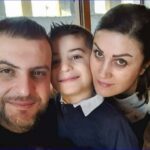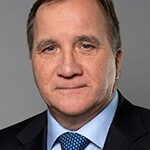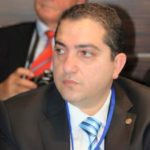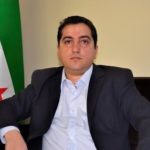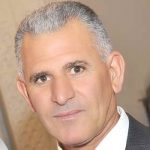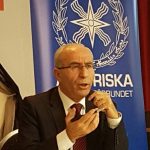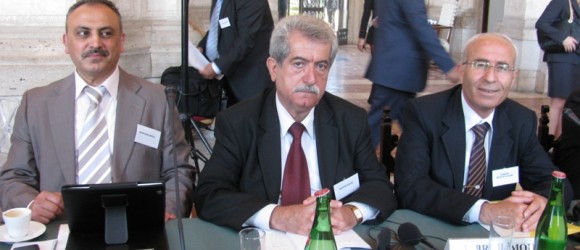
Assyriska Demokratiska Organisationens vision om framtida Syrien.

Assyrian Democratic Organization
Document Presented to the Rome Conference
Constitution-Making, Human and Minority Rights
In a New Democratic Syria
Introduction:
The peaceful revolution of the Syrian people for freedom, dignity and democracy has entered its nineteenth month. Despite the regime’s relentless use of military forces to suppress the peaceful protests, and utilization of its entire arsenal including warplanes, the Syrian people of all ethnicities and religions have exemplified great resilience and determination to restore its rights and freedom, and to remove all forms of injustice, oppression and discrimination. Furthermore, the ghastly violence and lack of international response has undeterred the will of the Syrian people who have made enormous sacrifices. The size and number of demonstrations have increased and spread across the entire country. Meanwhile, the regime’s continued use of force and policies of inciting sectarian violence has prompted people to arm themselves and resist the regime’s army. Consequently, this has given rise to the likelihood of Civil War in parts of the country, which has caught the attention of the international community and led them to interfere in Syria’s internal affairs.
The Assad regime has continuously refused to adhere to any of the proposed internal or external political solutions, the last one being the six-step initiative of UN Envoy Kofi Anan. This in turn, has aggravated the situation and depleted the country’s resources, and caused a humanitarian crisis. If the crisis in Syria is not properly addressed, it will soon become a failed State, which could lead to destabilizing the region. Therefore, it is imperative for the Arab and International community to interfere to end the current deadlock and impose a political solution that meets the aspirations of the Syrian people. A plan that achieves a peaceful and safe transition from a dictatorial State to a modern civil pluralistic democratic state built on the foundations of justice and equality.
First: The Desired Political System in Syria
It is well-known that Syria has historically been comprised of multiple religions, ethnicities, and cultures. Syria’s diversity has always served as an element of security and prosperity, based on the values of tolerance and co-existence. Syria’s greatest strength was its diverse population until it was manipulated by a Tyrant regime that used it as a tool to further divide its people and take control of the country. Furthermore, the regime’s misuse of Arabism and Islam has led to the deterioration of Syria’s cultural identity, where they were used as a tool to eliminate others and attempting to force everyone into their version of a melting pot that only serves the regime’s interests. Due to the regime’s intolerant politics, large groups of segment of Assyrians have migrated from Syria during the decades of Baath Rule. This migration has lately increased due to the regime’s heavy use of force against the different segments of the Syrian people. The Syrian national interest forces the democratic opposition to seek a new political system for the future of Syria which takes into consideration the issue of diversity in a manner where it focuses on the advantages to achieve unity, and prevent any form of tyranny.
Second: The Desired Political System – The Civil and Secular State
Today, we cannot speak of any rights for ethnicities and this idea cannot be fathomed while the current regime exists in Syria. In order to create a new political system that meets the aspirations of Syrians, the Assad regime in its entirety, must be dismantled. Furthermore, the country’s security institutions responsible for oppression and corruption must also be expelled. This goal is shared by all segments of the revolutionary movement and political opposition.
Most Syrian opposition groups have adopted the term of “modern civil state,” as an analogous term or concept of secularism, and avoided any mention of the term “secular.” This was done perhaps out of consideration to the Islamic movements, some of which equate the term “secular” to heresy and atheism. These groups did not bother to properly clarify and define the meaning and features of the civil state. These visions did not succeed in dispelling the ambiguity that surrounded the term “Civil State,” especially from the perspective of the Islamic movements, but rather increased the uneasiness and fears of some people, especially among minorities, because these definitions did not achieve the principle of equality among citizens. These definitions may instill discrimination among citizens based on religion, which poses an obstacle for unity of the people and state.
Our understanding of the modern democratic Civil State stems from being an independent sovereign state, a constitutional state has a modern constitution with a consensus. A constitution where all political affiliations and national components have contributed to its formulation. In this meaning, it becomes a transnational state that transcends religions and creeds. In this sense, it is a state for all citizens regardless of their differences, but not controlled by a religion, sect, denomination, race, ideology or party. It is the State that respects all religions and does not oppose them. It is the state that grants equal rights to all its citizens, and the practice of separation between religion and state exists. A democratic state with a political process of fair election and peaceful transfer of power. This understanding of the Civil State resembles what was described in the National Pact, issued recently by the Syrian National Council and approved by the Syrian Opposition’s Cairo Conference last July, as well as in the vision of the Muslim Brotherhood. It is a positive development reflecting progress and maturity among all national forces in the vision for the Future Syria.
We believe that this vision of a Civil State does not contradict the concept of Secularism, but completely integrates it. Therefore, we in the Assyrian Democratic Organization (ADO) call for adopting the term “secularism,” as it fulfills the aspirations of all components of Syrian society.
We in the Assyrian Democratic Organization (ADO) believe in the separation of religion and state. Secularism and democracy go hand in hand and cannot be achieved in isolation from each other. The democratic secular system provides freedoms for all religions, and prevents religious discrimination and sectarian persecution of minorities and women, and prevents the exploitation of religion, where it can be employed by the ruling authority or political parties for their personal gains. We do not view secularism as a dogma or hostile ideology, nor does it detract from its sanctity, but it aims to create a healthy separation between religion and state. The state stands at an equal distance from all religions, and all individuals are guaranteed freedom to practice their religion and their beliefs and rituals without imposing any control or censorship by the state or society.
Third: The rights of individuals and groups – Questions of identity, citizenship and integration
The concept of citizenship is a fundamental notion based on three pillars. First, equal rights for all citizens. Second, socio-political terms of political participation, as well as participating in the development dividend. Third, symbolically associated meanings of belonging to the homeland.
The concept of citizenship is based on the way it defines the individual who lives on the land of this state. This individual is not defined by his/her profession, religion, gender, ethnicity or nationality, but rather he/she is defined socially as a citizen. Every member of society has rights and duties, and to achieve full citizenship, then these rights and duties must be equal before the law.
We believe that there is a full correlation between human rights and the rights of citizenship, because the human rights accords focused on the rights of citizens in their homeland. Therefore the struggle for citizenship also becomes a struggle for instituting human rights as contained in the Universal Declaration of Human Rights and the international conventions that followed it, most notably the International Covenants of 1966 and the Declaration of the United Nations General Assembly in 1992 on the rights of national, ethnic, religious and cultural minorities.
According to the international conventions, everything that applies to individual rights, also applicable to the rights of a group, especially that is pertaining to the rights of individuals belonging to minorities and indigenous peoples. These conventions highlighted the importance of safeguarding the rights of groups, especially in multi-national, religious, cultural and linguistic countries. Therefore it is imperative to incorporate the international conventions that guarantee the rights of individuals and groups in any future constitution for the country where it becomes an integral part of the constitution, in order to resolve the multi-national, religious and cultural issues in Syria. The solution must be a national democratic solution within the framework of the unified Syrian people and land.
In this context, we note that the Assyrian people are one of the oldest indigenous peoples in Syria. In fact, Syria derived its name from: ASSYRIA, according to all well-respected historians. We call for the constitutional recognition of Assyrians as an indigenous people in Syria, and the recognition of the Syriac language and culture as a national language and culture in Syria, as well as ensuring the recognition of the Assyrian national identity and rights constitutionally. We also call for the constitutional recognition of the national identity of the Kurdish people, and all other nationalities and components in Syria within the boundaries and framework of the unified Syrian people and land.
It is the constitution and the rule of law that determine the capability of a country to integrate its people in its national framework. If the constitution was built on the foundations of justice, equality, partnership, respect for identities and full citizenship, it will provide a greater opportunity to achieve national integration, greater stability, and effectiveness of the new political system. Therefore, the state that is multi-national, religious and cultural must not allow itself to be controlled by a single group, nationality or religion, and must renounce domination, or the imposition of a single identity on everyone, and the exclusion of groups and minorities. Instead it must accept that citizens should be treated equally without feeling the need to hide or deny their national identity, culture or religion.
The Assyrian Democratic Organization (ADO) bases its approach on the national identity of Syria in respecting the UN’s currently recognized state borders, including the occupied Golan Heights, as a homeland for all Syrians, where the people of Syria must be recognized by a universal national identity and not the identity of one of its components. Hence, the Syrian Republic would become a nation for the Arab, the Kurd, the Assyrian, the Turkman and the Armenian. This does not eliminate the Arabic identity of its Arab citizens. This is similar to countries such as Jordan, Iraq, Algeria and Tunisia, where the non-existence of the term Arab in the name of the country did not eliminate the Arab identity of their respectful citizens. The Assyrian Democratic Organization (ADO) is also working on the rehabilitation, development and promotion of the Syrian national bond. As well as building a universal Syrian national identity that encompasses the multi-national, religious and cultural features of the Syrian society. A modern national identity that surpasses any community division based on nationality, religion, ethnicity, sect or region. This identity would become a gateway to address the current imbalance and large division in the national unity, and converts the country’s rich diversity to an element that strengthens the bond between the citizens, rather than an element that threatens to split the national unity. This calls on everyone to reject all forms of national and religious intolerance and extremism, and to work on encouraging a culture of citizenship, moderation, tolerance and acceptance of others, and to empower dialogue as a basis for the relationship between the different political components of the society. As well as enforcing the national and religious political groups to become pragmatic in their approach, and abandon their agendas that would convert the country into an unrealistic state. Instead, they must work on building a modern democratic state that is able to achieve prosperity for its citizens, and is able to become an active and integral part in the international community and region, in accordance with modern advanced environment that fulfills the interests of its people and country.
Fourth: A Vision for the Transitional Period
The Assyrian Democratic Organization (ADO) believes that the following conditions must be met prior to commencing negotiations with the current regime for a transitional government. In order to ensure a peaceful transition of power, it must provide a suitable environment, which requires:
I.
- Immediate end of all acts of violence, murder and detention
- Withdrawing the army and security forces from the Syrian cities and towns
- The release of all detainees, arrested due to the recent uprising
- Allowing the unhindered delivery of humanitarian assistance to the affected cities and areas
- Allowing the safe and dignified return of refugees and exiles
- Allowing the Arab and international media, as well as the international human rights and relief organizations to work freely in Syria
- All members of the regime who are responsible for the killing of Syrian citizens, must be held accountable
II. Begin a Transition Period that is Based on:
- The formation of an interim government which encompasses opposition groups and military personnel who have not partaken in any illegal activity such as the killing of innocent civilians or corruption, in order to maintain security and stability in the country during the transitional period after the fall of the regime.
- The interim government’s call for a collective national conference that does not exclude anyone, in order to develop a plan for the transitional phase with representatives of all segments of the Syrian communities.
- The interim government has the task of providing the proper climate for organizing political life in the country, and to provide the appropriate conditions for the political parties and unions to work freely, and to develop modern democratic laws for election and media.
- The interim government organizes, within a year and holds free elections under Arab and international supervision for a Founding Assembly whose task is writing the country’s new constitution, which shall be approved in a popular referendum, or the Founding Assembly may be given the power to be entrusted in setting the new constitution as was done in previous Syrian constitutions.
- To hold free parliamentary elections in a maximum period of six months under the new constitution.
- Parliament elects the president of the Republic.
- The formation of a permanent government under the presidency of the party or bloc winning the parliamentary elections.
- The immediate release of detainees and to investigate in the fate of missing persons, and compensating families of Martyrs, victims and other affected persons.
- The formation of an independent judicial body whose function is to receive complaints from citizens and investigate crimes against the Syrian people and to bring the perpetrators to justice.
- The formation of a national reconciliation committee in collaboration with civil society organizations, human rights organizations and volunteers to remove all forms of tyranny and corruption, and to disallow any cases of revenge.
Fifth: The General Principles Governing Political and Social Life and Economic Development in the New Syria
- The New Syria is a Secular Democratic State. It is a Parliamentary Republic, where the power belongs to the people, and is based on the principle of equal citizenship and separation of the different branches of the government, and the peaceful transfer of power, and the rule of law and the protection of minorities and their rights.
- The State guarantees its citizens, the stated rights in international laws of human rights, and fundamental freedoms of belief, speech, expression, assembly, media and others. Also, all of the citizens shall be granted equal rights without any discrimination on the basis of nationality, religion, ethnicity or gender.
- The application of a decentralized administrative system, and giving broad authority to the provincial and local councils, including the election of governors and mayors of cities.
- Full equality between women and men in all rights and duties, and the abolition of all forms of discrimination and violence against women, and enact laws to ensure fair representation for females in all institutions.
- The constitutional recognition of the national diversity in Syria, and ensuring full national rights for Assyrian, Kurds, and others.
- Neutralize the army’s influence in politics and limit its mission to defending the country.
- Restructuring of the security services.
- Commitment to ambitious plans for economic and human development, and to work on eliminating poverty, and grant full awareness to the disadvantaged areas and embrace balanced development in all the provinces.
- To achieve justice in the distribution of national wealth, so that the national resource are owned by all Syrians, and shift the goals of development to raise the standard of living of all citizens.
- Commitment to eradicate illiteracy and improve education at all levels, and to remove the emotional rhetoric from the curriculum and shifting it towards a scientific and practical approach to integrate into a new society that achieves prosperity and safety for all citizens.
- Liberating the media and allowing the establishment of private and independent media organizations, committed to professional standards and integrity, and are able to monitor the application of the law and evaluate the performance of government institutions.
- Ensure the equal rights of women and children and the protection of the family by providing healthcare to all members of society, and providing special attention to those with special needs.
- Working on the restoration of national sovereignty over the Occupied Golan Heights based on international resolutions.
- Adhere to a foreign policy inspired by the principles and rules of international law based on respect for the sovereignty of nations, and maintenance of civil peace, and establish better international relations in order to serve and achieve the national interests of Syria.
Finally, we want to mention that our future as Assyrians and Christians is closely linked to our survival in our home with our partners, and this cannot be achieved without living in freedom and dignity, and on the basis of full partnership between everyone in a modern democratic state. We would like to confirm that the national existence of the Assyrians in its deep historic connection to the ancient civilizations of Syria, is an Arab and Kurdish responsibility as much as it is an Assyrian responsibility. Also, the Christian existence in Syria, which holds humane and loving values, is the responsibility of Muslims before others. As well as, maintaining the multi-national diversity of Syria, as much as it is the responsibility of the Syrians, it is also the responsibility of the international community.
Rome 20/09/2012 Assyrian Democratic Organization


